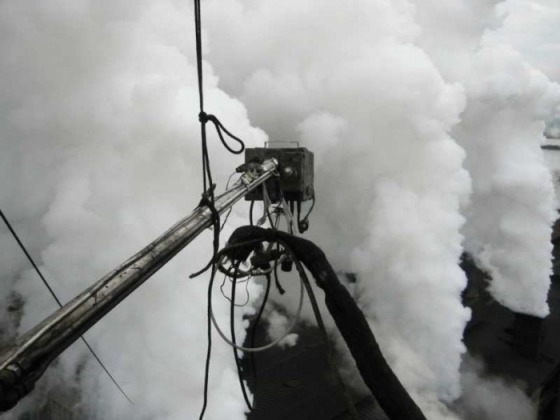AIR
Air in the atmosphere is a reserve of OXYGEN and CARBON DIOXIDE without which survival of plant and animal is not possible.The OZONE layer acts as a shield above the earth to prevent harmful ultraviolet radiation of the sun from reaching the earth surface. The other gases in the atmosphere perform vital functions that maintain living environment in balance. The atmosphere controls the temperature and moisture content during day time and the nights. It protects the earth surface from constant bombardment of meteors from the space.
AIR POLLUTION
Air pollution is the human introduction into the atmosphere of chemicals, particulate matter, or biological materials that cause harm or discomfort to humans or other living organisms, or damages the environment. Air pollution causes deaths and respiratory diseases. Air pollution is often identified with major stationary sources, but the greatest source of emissions is mobile sources, mainly automobiles. Gases such as carbon dioxide, which contribute to GLOBAL WARMING, have recently gained recognition as pollutants by climate scientists, while they also recognise that carbon dioxide is essential for plant life through Photosynthesis.
Ever since people first gathered in settlements there has been pollution. Pollution usually refers to the presence of substances that are either present in the environment where it doesn't belong or at levels greater than it should be.
Some pollutants come from natural sources.
Forest fires emit particulates, gases, and VOCs (substances that vaporize into the atmosphere) Ultra-fine dust particles created by soil erosion when water and weather loosen layers of soil, increase airborne particulate levels. Volcanoes spew out sulfur dioxide and large amounts of pulverized lava rock known as volcanic ash.

